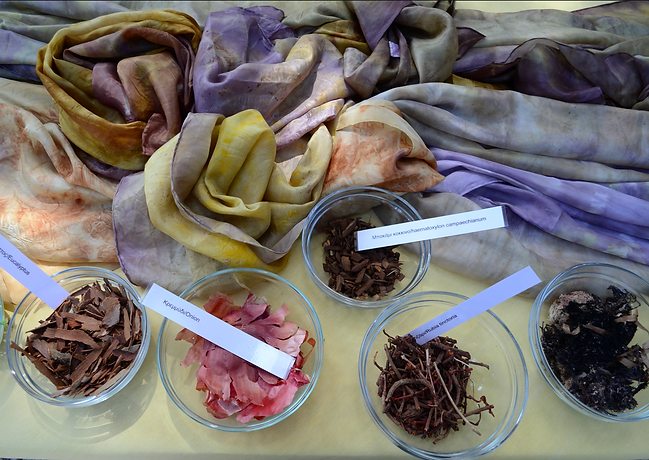Episode 1 : PRESERVING AND SHARING TEXTILE HERITAGE
Synopsis : We follow Cecilia Palmer of the Craft Atlas as she journeys to Athens, Greece, to document artisans weaving at the SEN Heritage Looms women’s organization.
Her efforts are inspired by her own project’s priority in FAIR archiving and documentation and in witnessing her inclusion of this new group on the Craft Atlas website, we understand those methods of preserving and sharing cultural heritage.

Characters

Cecilia Palmér
Founder at Craft Atlas

Kassia St Clair
Cultural Historian

Dr Tsourinaki
Textile Researcher at
SEN Heritage Loom

Students and artisans from
SEN Heritage Loom

The lack of textile documentation within history has led to the erasure of the work of women and other marginalized groups. How can we now make cultural heritage accessible to all audiences in ways that pays tribute to this history and uplift and support today's artisans?

The goal : having the audience understand that weaving is universal and that throughout time, the way that it has been shared has led to a global spread of designs, productions, and stories but that this spread has not also credited cultural knowledge sources and artisans, predominately the female ones.
_j.jpg)
The story will be told in such a way that the viewer picks up on a metaphor for human communication within the ways that textile techniques have spread across the globe throughout history.

Episode team

Victoria Manganiello
Creative Producer & Director

Elli Leventaki
Story Producer & Art Historian

Nalia Ziku
Film Crew and Logistics

Iris Favand
Research Assistant and Logistics Manager
Craft Atlas

''The Craft Atlas is an open access platform for global craft knowledge, techniques & makers''. It was founded by Cecila Palmér in order to collect and share knowledge on handicraft, as well as highlighting the work of artisans. ''For more cultural appreciation and less appropriation.''

SEN Heritage Loom
The SEN Heritage Looms is a hand weaving community based in Athens. It was founded in 1872 by a women's society, and aimed at training young girls. Since then, it has becomes the oldest hand weaving community still existing in Greece, and it has produced a large collection of recognized hand woven textiles.
SEN Hertiage Looms is now open to the public and proposes classes of historic spinning, felting, dyeing, weaving. The organisation is lead by Sophia Tsourinaki, a textile researcher focusing on the archeology of textile.

How can a standard for fair documentation and attribution be generated and sustained?
Will access to specific resources impact what is being documented and whose voices are being amplified?
How can intangible cultural heritage be shared?
How does the internet and universal digitization affect archiving?
How can the voices of artisans and producers accompany their work once it enters the global stage?
How have weaving and textile traditions spread throughout the globe and how have the documentation traditions supported, prevented or adjusted that?